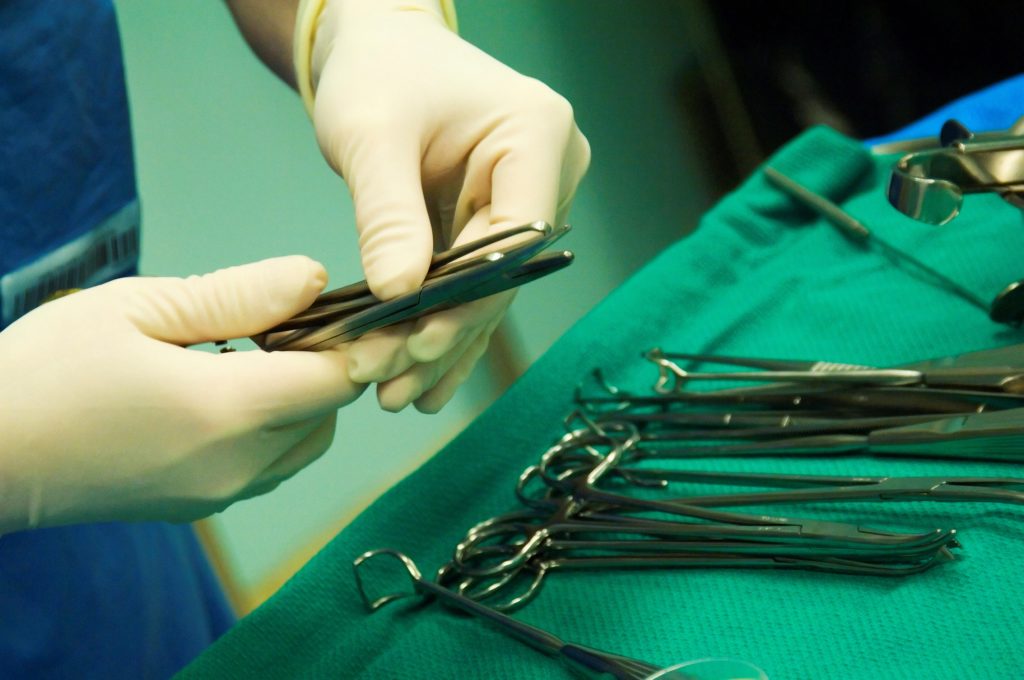
When patient injury or illness occurs due to a medical provider’s mistake, a medical malpractice lawsuit may be filed. Your medical provider is expected to follow the generally accepted standard of care. In cases of negligence, your rights are protected under New York law.
About one person in every 25 hospital patients develops an infection, according to CDC reports. These infections lead to death in about 10% of the over 700,000 reported infections and injuries during hospitalization.
Here’s another way to view it: for every person who is killed by a drunk driver in the United States each year, two people die from medical mistakes. Correctable medical errors are a huge problem, but it is a problem that largely goes ignored.
If you have been infected or injured while hospitalized, you should not have to pay for the mistake of another. By filing a medical malpractice lawsuit, you can not only win much-needed compensation, but draw attention to an incredibly important and dangerous issue in our country.
What kind of errors qualify for a lawsuit? The list of common medical mistakes is varied and detailed. Here is a compilation of some of the most common medical mistakes that you may have endured.
Misdiagnosis
Your doctor may have made an incorrect diagnosis. For example, they may have mistakenly diagnosed a spot on your arm as psoriasis when it was actually skin cancer.
Your doctor may also delay giving a correct diagnosis. For example, they may have correctly diagnosed dyspepsia (indigestion), but failed to recognize the root cause was a heart attack since they did not order the correct test.
Misdiagnosis happens most often with the following conditions:
- Blood clot in the lung
- Heart attack
- Heart disease
- Infections
- Tumors
In order to win a medical malpractice lawsuit, your attorney must prove that the doctor’s misdiagnosis directly caused your injury.
Medication mistakes
Over 1.5 million Americans suffer each year due to medication mistakes. This can happen due to various errors.
First, the doctor may write the wrong prescription, or they may prescribe too much or too little of the right prescription.
Sometimes the pharmacy gets the prescription wrong. These mistakes can be life-altering or life-threatening.
During hospitalization, many people may be involved in your care. As the number of people in the chain of care increases, the margin of error goes up. A lack of clear communication between the chain members can have disastrous consequences.
To know exactly who is liable for medication mistakes, it’s best to seek experienced legal counsel.
Surgical mistakes

No surgery is performed without risk, yet negligence often ties into mistakes made during surgery. Some common forms of surgical mistakes include:
- Leaving a foreign object inside the body (a sponge, tool, or other item)
- Performing the wrong surgery
- Failing to control bleeding
- Damaging a nerve or cutting an artery
- Administering an incorrect dosage of anesthesia
- Using an improper tubing technique for anesthesia
- Using defective equipment
- Giving too many or the wrong kind of blood transfusions
- Lack of proper patient monitoring both during and after surgery
A surgical mistake can cause several problems. Some problems, such as infection or numbness due to nerve damage, are relatively short-lived. Other problems may be far more serious: coma, paralysis, or death.
Hospital infections and injuries
Falls are a common problem in hospitals, causing injuries and infections. For example, if a patient is too heavy for a nurse to assist without asking for help, the fall may be attributed to the nurse’s negligence.
Other common mistakes that may occur when you are hospitalized can include:
- Failure to remove central lines
- Too much bed rest
- Improper antibiotic use
- Infections to superbugs that are common in hospitals
Make sure to seek legal advice if you contract an infection or experience an injury while hospitalized.
Childbirth-related mistakes
With so many variances in each pregnancy and childbirth, the risks of medical mistakes are high. The mistakes that may qualify for a medical malpractice lawsuit include the following:
- Abnormalities within the placenta
- Anesthetic mistakes
- Hemorrhages during or after childbirth
- Negligence in premature or post-birth baby care
- Nerve damage to mother or baby
- Prolonged labor that causes injury to mother, baby, or both
- Prolonged vaginal bleeding
- Surgical mistakes
In these cases, medical experts often must testify that the standard of care was violated.
Types of Damages You May Be Able to Get in a Medical Malpractice Suit
Three types of damages are available in a medical malpractice lawsuit:

- Punitive damages may be given if your medical provider was proven to be negligent.
- Non-economic damages may be awarded for your pain and suffering.
- Compensatory damages apply if you lost wages and incurred health care costs due to the malpractice.
The amount of compensation may be reduced if you are found partially liable. Contact a knowledgeable New York medical malpractice attorney today to discuss the details of your case and learn if you are entitled to damages.









